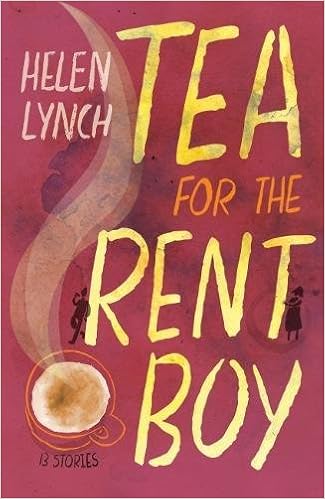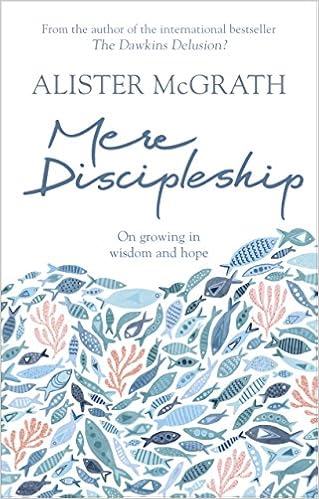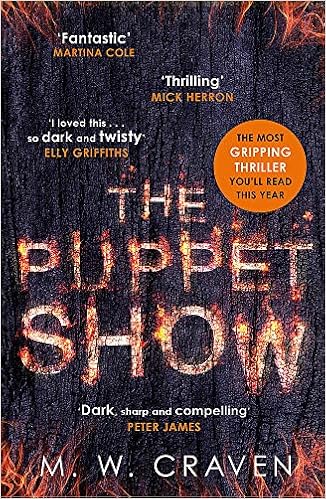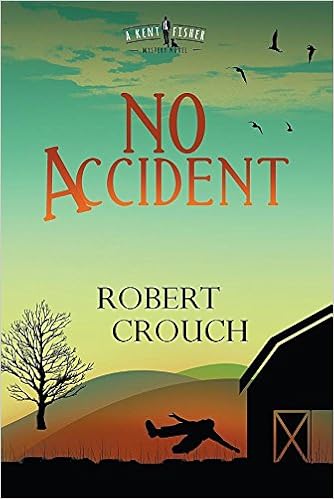A bit late again this month, what with trips to Orkney and book launches (and having to repaint the bathroom ceiling, but that's another story).
My non-crime fiction for this month is one that's been on my shelf for a little while - a signed copy, forsooth! It's Helen Lynch's Tea for the Rent Boy.

A book of stunning short stories from the author of The Elephant and the Polish Question – you never know what you’re going
to meet in the next one. Some of them are disturbing, distressing, and complex,
and some just feel like a hug, but all are beautifully observed, a constant,
steady, sympathetic probing into the innermost thoughts and memories of the
characters. You feel you know them well.
Now for the non-fiction. I’ve always had an
aversion to reading theology and philosophy, feeling that somehow my brain was
not constructed for thoughts of that kind. However, I’ve decided to try to
train myself out of such an aversion, and so I’m often on the hunt for the kind
of accessible theological works that make me feel I’m making some kind of
progress. That was how I came to read this one,

Alister McGrath, Mere Discipleship.
Based on sermons and
talks he has given and edited here, this book is subtitled ‘On growing in wisdom
and hope’. I found the first chapter very hard going, but on the whole useful
in the thoughts it provoked. After that it was easier, and McGrath’s thinking
is clear and in some cases confessional. He is a scientist and was, when young,
a determined atheist, but he would have done well to pay attention to C.S.
Lewis’ warning to be careful what you read, as it may affect you in ways you
never expect. McGrath is much influenced by Lewis, as you could tell from the
book’s title, but he brings in other authors as well to show how, for example,
a Christian life is a road, not the balcony above it: we are travelling and not
mere observers, but we have guides and companions on the path. Threads that
weave through the talks are the rationality of Christian thought, where some
might think that reason and faith are opposed, and Christian faith as a way of
seeing things, whether as a lens or as a vantage point. Several of the chapters
analyse the contribution of some twentieth-century theologians to the them: not
surprisingly, one is C.S. Lewis, but another is Dorothy L. Sayers and he also examines
J.I. Packer and John Stott, all of them with admiration. The book finishes with
four short sermons that sum up themes and references from the rest of the book,
in specific contexts. I’ll read more by this author, and also follow up on
several of the authors he mentions – it’s the kind of book that gives you even
more on your reading list.

Elly Griffiths, Dark Angel: I was initially surprisingly reluctant, as I’m not that keen when series wander off
from the place they’re set (though I’m seriously guilty of doing it myself).
And I don’t know what it is about Elly’s books. They start off slowly, and you
think Oh, I can take or leave this one. And you put it down after a few pages,
and then you find it’s already working away at the back of your mind, and so
you decide to go back and read a chapter or two … and then the book’s finished.
How does she do that?? Of course it was excellent, as ever.

M.W. Craven, The Puppet Show: I didn’t read this book for ages, despite the hype, because I thought
from the cover it was not the kind of book I would like. Well, don’t judge a
book by the cover, I believe someone once said. It’s much more character-driven
than I expected, and interesting characters at that. The landscape, too, is a
strong feature: you really feel you are in Cumbria. But the plot is strong too,
and there really aren’t any weak points here. A very enjoyable read, and I
believe the next one is already out!

The Peat Dead, Allan Martin: Real island life, not precious fantasy.
Islay is the island in question here, and the plot is police procedural, after
the discovery of bodies in a peat bog that turn out to be relatively recent. I
like the detective, Angus Blue: he seems to have an interesting back story that
isn’t just churned out at you, and the rest of the police are not cardboard,
either. I’m not particularly keen on government conspiracy plots, but the
characters held my attention. An entertaining yarn in the old tradition - I’d like to read more. And I’m delighted to
note after writing this review that he’s been shortlisted for best newcomer in
the Bloody Scotland lists – well deserved!

No Accident, Robert Crouch: A light touch from the start, but it needed to be good
to get past being written in the present tense! It’s scrambled, hurried, and
casual in style, and the character of the narrator comes across strongly this
way. However, I felt I could only read a bit at a time because it was so busy.
Lots of characters at all angles, complex plot, and I’m not sure I didn’t
finish it just because I wanted to write a review. But it did have its appeal,
I think, and the ending was well done.
Susanna M. Newstead, One Misty Moisty Morning: I
think I’ve come into this series late, but I was initially intrigued by title
and cover. However, despite the presence of the bear I found this hard to warm
to – hard to read, indeed, because of misplaced and missing commas, typos, and
generally confusing writing. American influence? Phrases like ‘yea big’, and
some odd accents? Not sure, and didn’t feel like checking. I managed a bit at a
time. The action is quite slow and the characters don’t exactly leap off the
page: I didn’t have much sense even of the narrator, except it was a man with
some authority. It’s a shame, because I’d say it had been very carefully
researched. The bear was nice, though.

Jim Kelly: The Great Darkness: Set in the confusion and shadows of the Second World War, this is a
book that seems set to puzzle from the start. I liked the strange crepuscular
lighting of it, the sort of sideways, meditative investigation: the policeman,
insomniac after his experiences in the first war, is very calm, moving slowly
partly because of his injured eyesight – the whole book seems set in difficult
light-levels. It’s also set in the so-called Phoney War, an unusual time for a
book but a good one, when war had neither started nor stopped. The background
of Cambridge with its academics adds to the mix, but is not over-egged. A few
mild anachronisms, but not enough to annoy – this is a good, original book,
with some lovely use of language.
J.D. Kirk, A Litter of Bones: Disturbing start, child abduction in the Highlands. Well written, particularly
the sniping and banter between the police officers. The parts where we hear
from the abducted child were good though did not benefit from comparison with
similar passages in a Susan Hill I read recently, though they very much had
their purpose. If you don’t like harm to animals (and I have to say I don’t at
all) then there are passages in this book that are definitely not for you. But
the plot is good and the characters interesting.
Okay, that's this month, and there are already some good reads lined up for next month! In the mean time, thanks for all the sales for A Wolf at the Gate - please review if you enjoy it!
I'm currently working on a stand-alone which is taking some research - not even a working title yet for that one. Then the next Hippolyta is scheduled optimistically for Christmas / New Year, and after that who knows? There should be another Murray and another Orkneyinga in the near future, anyway!


No comments:
Post a Comment